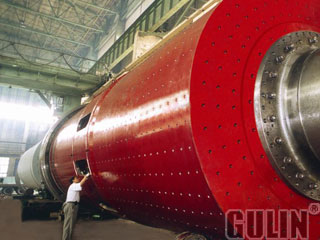Gulin® is a professional antimony ore grinding mill manufacturer in China, and we have designed many antimony ore processing plant, which have been exported to numerous countries, such as USA, South Africa, Nigeria, India, south Africa, Saudi Arabia, Kenya, Canada, the Philippines, Botswana, Ethiopia, Australia, Singapore and UAE.

Antimony ball mill
Antimony Ore Grinding Mills
Our company mainly provides the antimony mill is: ball mill, vertical mill, Trapezium Mill.
Ball Mill: We has Two decades of production experience, advanced ball mill technology, strong technical, reasonable ball mill price, welcome consumers to see consultation. The Ball Mill can be a key equipment for grinding the crushed materials, and also the ball mill is trusted in powder-making production line including cement, silicate, new-type building material, refractory material, fertilizer, ore dressing of ferrous metal and non-ferrous metal, glass ceramics, etc. As well as the ball mill can grind various ores along with other materials with dry type and wet type. There are two forms of ball mill, grate type and overfull type as a result of different ways of discharging material.
Vertical Roller Mill: Vertical Roller Mill is really a new sort of large scale power mill which can be specifically designed to resolve the difficulties of low capacity and high usage of industry mills. Having a decade of years’ research of mills, Vertical Roller Mill was created and manufactured based on our advanced design idea, as well as in conjunction with the European technology and the market demand. Vertical Roller Mill adopts reliable structure and reasonable process flow, integrated with drying, milling, classifier, and elevator.
Antimony ore processing plant
This antimony processing plant is configured for any throughput close to 40,000 TPA – a capacity which reflected the fact very high-grade ore was processed. However, the present crushing units from the plant use a capacity of around 100,000 TPA. Accordingly, from the installing of additional tanks and ball mill, the plant’s throughput can be increased to levels approaching capacity without the need for extensive redesigning. The tailings dam used during previous production may also be expanded to deal with increased plant capacity.
This antimony processing plant operated for a amount of around Half a year before Chase Minerals was forced into administration following a 1998 stock exchange crash. The plant was subsequently operated for an additional 15 months by Farmington Mining.
This infrastructure will significantly decrease the capital expenditure needed to bring high-grade gold deposits identified over the extent of the Blue Spec and Red Ribbon Shears into production inside a shorter period when compared to a Greenfield project.

